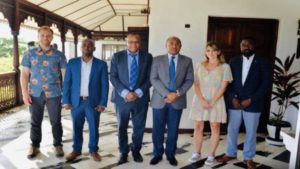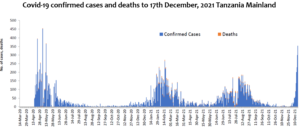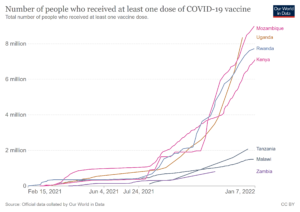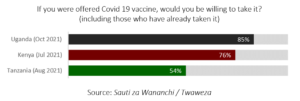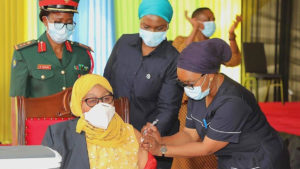by Ben Taylor
Universal Health Insurance Bill enacted
On November 1, 2023, the Tanzanian Parliament enacted the Universal Health Insurance Bill, a highly significant piece of legislation that aims to ensure access to healthcare services for all citizens through a comprehensive health insurance system.
The new law makes it mandatory for every citizen of mainland Tanzania to have health insurance. To achieve this, citizens may either join a recognised private health insurance scheme or the National Health Insurance Fund (NHIF) as a public scheme.
The Tanzania Insurance Regulatory Authority (TIRA) will oversee and manage the health insurance system. TIRA’s responsibilities include registering and regulating health insurance schemes, ensuring compliance with a standardised benefit package, and providing guidelines to optimise the efficiency of health insurance schemes nationwide.
The law mandates a standardised benefits package. Members also have the option to acquire additional benefits beyond the standard package. The Minister is granted the authority to modify the standard benefits package based on various evaluations and the sustainability of funds.
Similarly, the legislation empowers the Minister to enhance the public health insurance scheme based on findings from studies and evaluations.
Finally, a specific provision caters to financing healthcare for the poorest households, constituting 27% of Tanzania’s population. Special funds, sourced from electronic transaction revenues, excise duty on select products, taxes on gaming, motor vehicle insurance, parliamentary allocations, returns from fund investments, and contributions from stakeholders, including development partners, will support health insurance for this demographic.
In tabling the bill before Parliament, health minister Ummy Mwalimu said the government will establish an equity fund which will be used to pay the insurance premium for poor Tanzanians and finance the cost of treating chronic diseases such as cancer, kidney and heart problems, and emergency services like accident treatment.
“We are going to revoke the exemption system which has not benefited people,” she added, referring to the system that has theoretically existed up to now whereby children under five, those aged over 60 and pregnant women were entitled to receive free treatment. “The system is there on paper,” she explained, “but in most cases, exempted people do not get medicines and other services”.
The government made various changes to the Bill that had been proposed by the parliamentarians and other members of the public. The minister said the government repealed a section which restricted some public services for people who had not subscribed to the government’s health insurance schemes.
Previously, the Bill restricted access to services such as driving licence, motor vehicle insurance, tax identification number (TIN), Sim card registration, business licence, passport or visa, registration of students, and national ID. This section had drawn widespread public criticism.
Ms Mwalimu said the section was scrapped in response to public demand, but that the government had instead introduced a different “sanction” to make it necessary for people to join the insurance coverage.
“We will invest in public awareness programmes and convincing people to join,” she said. “And there will be a penalty of 10% of the annual contribution for a person who do not join any insurance scheme after three years since the law starts,” she added.
“This is a basic step towards ensuring Tanzanians live in good health by accessing the health services timely,” said Stanslaus Nyongo, the chair of the Parliamentary Health and HIV/Aids Committee.
Zanzibar on track to eliminate cholera
Epidemics of the deadly disease have been absent on the Zanzibar isles for the last five years, even as cholera incidence has risen globally, and researchers say the current approach to controlling cholera looks set to eliminate the disease on the islands by 2027.
Scientists from the World Health Organization (WHO), the Ministries of Health for Tanzania and Zanzibar, and UNICEF, conducted the research, which was published this year in The Pan-African Medical Journal.
Zanzibar’s cholera plan rests on three pillars – an enabling environment, prevention and response – and encompasses a diverse set of actions, from training food workers on cholera prevention, to major investments in water and sanitation in hot-spot zones, to preventive vaccination, to stockpiling life-saving IV fluids and oral rehydration solutions where they might be needed, and more.
The model has proven “very effective”, write the researchers. Zanzibar’s high-level leadership commitment ought to be taken as “exemplary”, they add. “The improvement of water and sanitation infrastructures, coupled with a comprehensive plan to eliminate cholera, has set Zanzibar on the path towards a future free from this disease,” said Ghirmay Andemichael Redae, Liaison Officer for WHO Zanzibar.
The entire population of Zanzibar has been targeted for cholera elimination through the approach, which included providing preventive cholera vaccination to 322,483 people in cholera hotspot areas of Unguja and Pemba Islands. However, the researchers noted that when COVID19 vaccines were introduced concurrently, the coverage for cholera vaccination declined.
Cholera, a bacterial disease transmitted in contaminated food and water, spreads fast, sometimes killing patients in as little as a few hours after exposure.
Zanzibar residents remember the last major outbreak of cholera to hit the island. It began in September 2015, and rolled on for ten months, affecting 4,330 people, and killing 68. Zanzibar has experienced no fewer than 17 cholera outbreaks since the 1970s.

